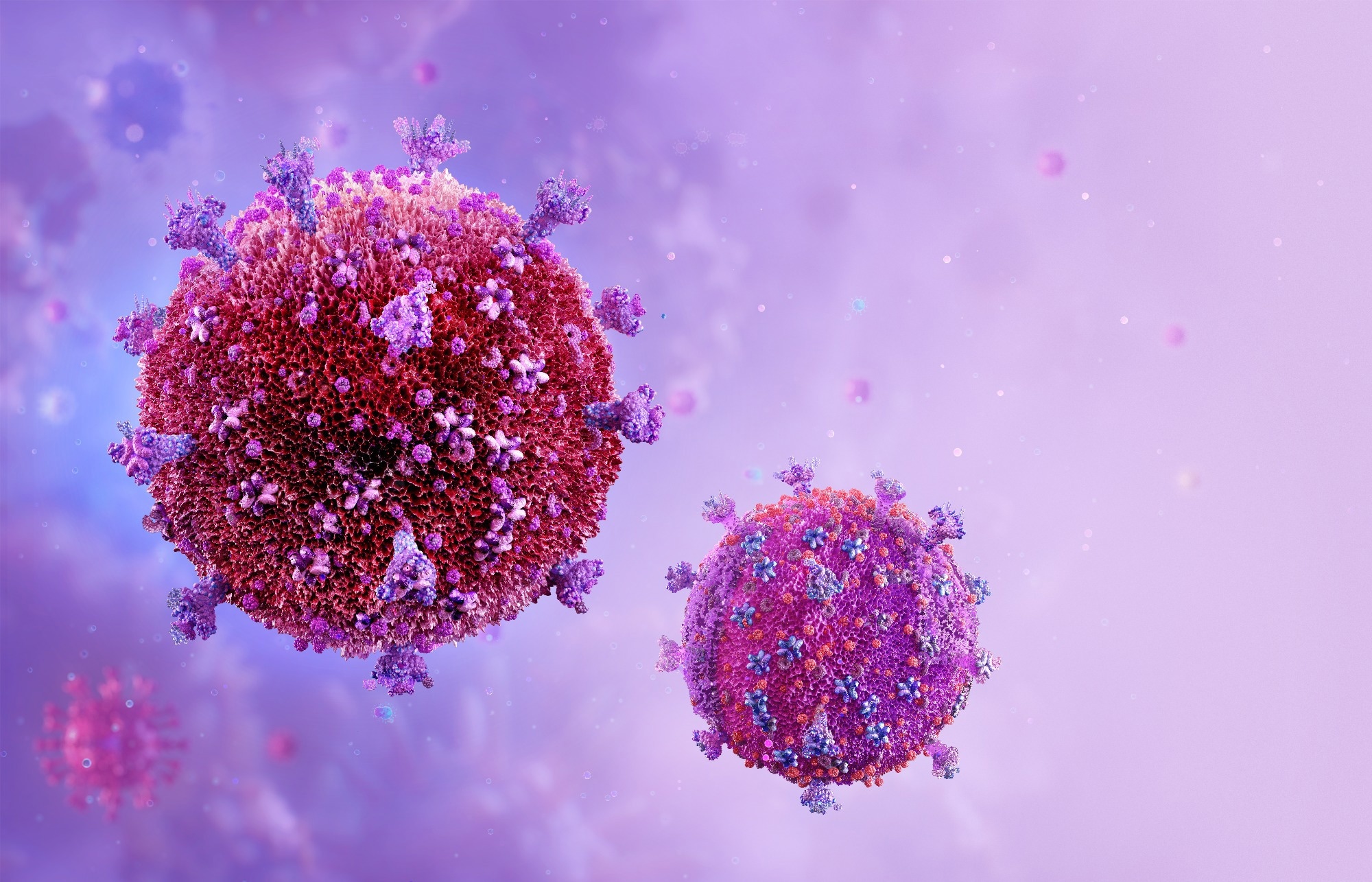Infection
Are people with HIV at a higher risk of severe COVID-19 outcomes?
In a recent review published in the journal Cellular & Molecular Immunology, researchers discussed the important virological, immunological, and clinical aspects of severe acute respiratory syndrome coronavirus 2 (SARS-CoV-2) infections in human immunodeficiency virus (HIV) patients.
This included the severity and outcomes of coronavirus disease 2019 (COVID-19) and the response to vaccines.
Background
People with HIV have varying levels of immune suppression, viral control, and immune reconstitution, depending on the stage of HIV infection and whether they are on antiretroviral therapy. HIV infections affect the immune system, and often, people with HIV are vulnerable to respiratory infections such as pneumococcal pneumonia and influenza.
With the onset of the COVID-19 pandemic, the United States (U.S.) Centers for Disease Control and Prevention (CDC) indicated that people with HIV infections were at a greater risk of COVID-19 complications than the general population.
The immune competence of people with HIV varies substantially based on whether the individual is on antiretroviral therapy or remains untreated. The HIV infections and the state of immunity in HIV patients have been remarkably well-managed with the use of antiretroviral therapy.
However, the response to antiretrovirals often varies between individuals, and studies report that despite sustained viral suppression, the CD4 cell counts are not normalized in close to 30% of the HIV patients undergoing treatment. This incomplete immune recovery could impact immune response to SARS-CoV-2 infections and COVID-19 vaccinations.
COVID-19 incidence, severity, and clinical outcomes
While early studies reported conflicting results about the incidence of SARS-CoV-2 infections among people with HIV as compared to people without HIV, recent evidence suggested that the HIV infection itself does not increase the susceptibility to SARS-CoV-2 infections.
Instead, the health status and social inequalities faced by people with HIV were suggested to be the factors that increase the susceptibility of people with HIV to SARS-CoV-2 infections.
Examination of clinical outcomes and disease severity in people with HIV and SARS-CoV-2 coinfections indicated that the crude mortality rates associated with COVID-19 were higher among people with HIV as compared to those without HIV.
However, the status of the HIV infection also seemed to play a significant role in the COVID-19 outcomes. Individuals with uncontrolled HIV infections, indicated by low CD4 counts and detectable levels of HIV viral loads, were at an increased risk of severe COVID-19 outcomes and mortality.
Other studies reported that although antiretrovirals did reduce the risk of severe COVID-19 outcomes and mortality risk in people with HIV, they continued to be at greater risk of severe SARS-CoV-2 infections than individuals without HIV.
Furthermore, it has been suggested that people with HIV on antiretroviral therapy also face other health problems, such as diabetes, hypertension, and cardiovascular disease, which increase the risk of severe COVID-19 outcomes.
Impact on immunity
The findings on the impact of HIV infections on innate immunity continue to remain inconclusive.
Studies have reported that severe lymphopenia that occurs when HIV infections are left untreated, or the inadequate elevation of the CD4 cell counts in patients undergoing antiretroviral therapy can impact the ability of HIV patients’ immune systems to mount a strong T-cell response against SARS-CoV-2 infections.
However, the present review found that overall, people with well-controlled HIV infections had a comparable immune response to SARS-CoV-2 infections as people without HIV.
Studies also suggested that the severe immune dysfunction that occurs in people with HIV caused prolonged SARS-CoV-2 infections and significantly longer viral shedding consisting of high SARS-CoV-2 levels.
Furthermore, the protracted SARS-CoV-2 infection resulted in the accumulation of multiple mutations that could confer the virus with resistance to neutralizing antibodies.
However, research also indicated that the initiation or resumption of antiretroviral therapy played a significant role in accelerating SARS-CoV-2 clearance, highlighting the fact that complete immune restoration was not imperative to SARS-CoV-2 clearance.
Efficacy of COVID-19 vaccines
Although people with HIV have been largely underrepresented in clinical trials that test the efficacy of COVID-19 vaccines, a few trials have included people with HIV on stable antiretroviral therapy.
The findings suggested that although the COVID-19 vaccines were effective in protecting HIV patients against fatal SARS-CoV-2 infections, the efficacy of various COVID-19 vaccines is lower in people with HIV as compared to those without HIV.
Furthermore, the incidence of breakthrough SARS-CoV-2 infections was higher among people with HIV than among those without HIV, and the CD4 cell counts were negatively associated with the risk of breakthrough SARS-CoV-2 infections.
One study reported that a third dose of the COVID-19 vaccine did reduce the risk of breakthrough SARS-CoV-2 infections among people with HIV.
Conclusions
Overall, the review indicated that people with HIV, especially those with advanced or untreated HIV and low CD4 cell counts, were at a greater risk of severe COVID-19 outcomes. Furthermore, the cellular and humoral immune responses against SARS-CoV-2 infections were suboptimal in people with HIV who had incompletely recovered immunity. SARS-CoV-2 infections were also more prolonged in people with HIV, but antiretroviral therapy was seen to help in clearing infections.
Additionally, the incidence of breakthrough infections was higher among people with HIV, although a third dose of the vaccine was effective in reducing the risk of breakthrough infections.

